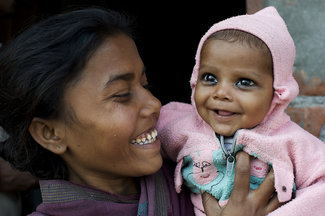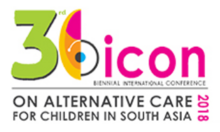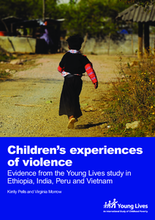

Displaying 391 - 400 of 753
This is the report of the 3rd Biennial International Conference (3rd BICON) on “Evolving Trends in Alternative Care for Children in South Asia” that was convened by Udayan Care on March 16 & 17, 2018 at Amity University, Noida NCR (India).
This paper is about child protection issues in Pakistan, one of the South Asian countries in the Indian sub-continent.
This article from Daiji World shines light on the number of unregistered children's homes in India and the importance of registering these institutions to curb the vulnerability to child trafficking.
The 3rd BICON, organized by Udayan Care with support from Amity University and in partnership with UNICEF, is for everyone involved in the care of OHC children and youth in South Asia. It will bring together national and international experts, individuals and organisations working on child protection and alternative care and civil society representatives from SA countries.
This article is an analysis of a State sponsored scheme in Rajasthan, the Palanhar Yojana, which has been successful in demonstrating the success of the scheme as an instrument of family strengthening.
This article discusses emerging trends in deinstitutionalisation and alternative care avenues nationally and internationally and examines the Miracle Foundation's evolution from a residential care provider to a family-based care and family strengthening organization.
This dissertation is composed of four papers. It builds on the postcolonial and post-development theories to provide a critical and a multifaceted approach to understand volunteer tourism as a poverty business.
In this summative report from Young Lives, an international study of childhood poverty, authors Kirrily Pells and Virginia Morrow highlight the study’s key findings on violence affecting children, exploring what children say about violence, how it affects them, and the key themes that emerge from a systematic analysis of the children’s accounts from study countries of Ethiopia, India, Peru and Vietnam.
This study asked three primary questions: 1) What is the nature of crisis children encounter on the street? 2) What are the ranges of informal caregiving practices? 3) What social network characteristics facilitate or complicate caregiving?
UNICEF is seeking a Chief of Child Protection in Pakistan.



